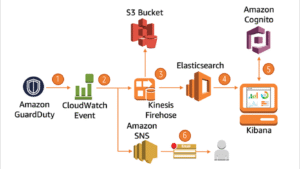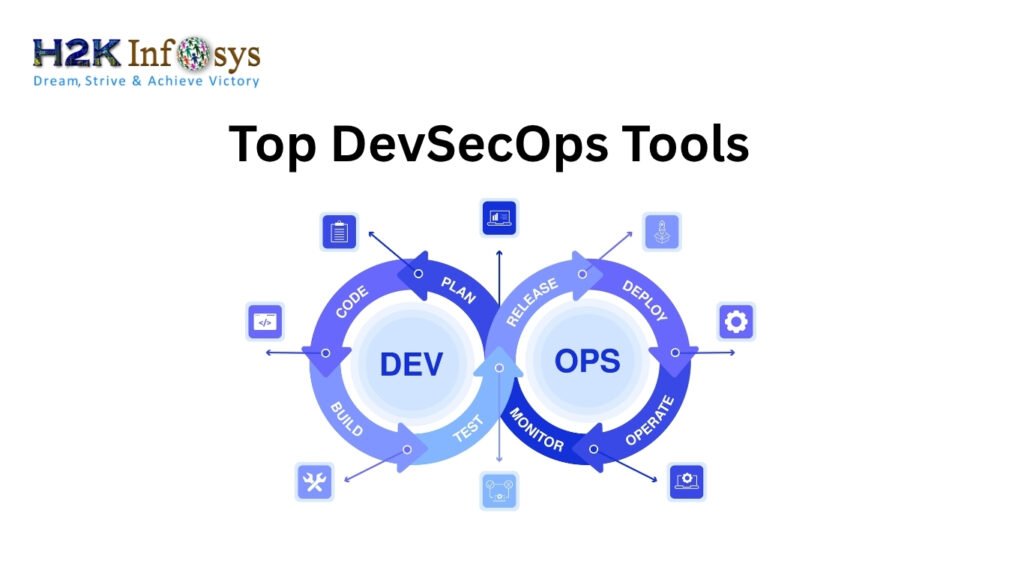The Business Analyst/Project Manager hybrid function is the most frequently mentioned of the several BA hybrid roles. While opinions may differ on whether a blended BA/PM role should exist and how the two positions differ and overlap, everyone can agree that this hybrid position may be quite difficult. It is also a hybrid that is gaining popularity as businesses explore ways to operate more efficiently and adaptably. In this article, the top three reasons why many people find this hybrid role challenging and offer some solutions will be discussed. Check our Business Analyst Online Course to learn more.
The BA/PM Role Requires Expertise In Both Disciplines.
The role of a Business Analyst (BA) and Project Manager (PM) are critical in ensuring that projects are executed efficiently, meet business objectives, and deliver value to stakeholders. While the roles of BA and PM may seem distinct, in practice, they often overlap, and individuals who possess expertise in both disciplines can be particularly valuable to organizations. The ability to understand both the business side and the project management side is essential to successful project outcomes.
The Business Analyst’s Role
A Business Analyst focuses primarily on understanding business needs, identifying problems, and gathering detailed requirements. They work closely with stakeholders to define project scope, objectives, and deliverables. BAs are responsible for translating business requirements into technical specifications, ensuring that all project deliverables align with the overall business strategy. They act as a bridge between the business and technical teams, ensuring that the solution provided is both viable and effective in addressing the business problem.
Key responsibilities of a Business Analyst include:
- Ensuring that the project delivers measurable business value.
- Gathering, analyzing, and documenting business requirements.
- Conducting stakeholder interviews and workshops.
- Developing business cases and user stories.
- Creating functional specifications and process models.
The Project Manager’s Role
A Project Manager, on the other hand, is responsible for overseeing the entire project lifecycle. They manage resources, timelines, budgets, and risks, ensuring that the project is completed on time and within scope. PMs work to ensure smooth communication between stakeholders and teams, providing direction and resolving issues as they arise. The Project Manager’s role involves coordinating the efforts of various teams to ensure that the project is delivered successfully.
Key responsibilities of a Project Manager include:
- Planning and defining project scope and objectives.
- Managing project schedules and budgets.
- Identifying and mitigating risks.
- Leading and motivating project teams.
- Communicating progress to stakeholders and adjusting plans as necessary.
The Need for Expertise in Both Disciplines
In today’s fast-paced and complex business environment, the roles of BA and PM are increasingly interdependent. A Business Analyst with project management skills can help ensure that business requirements are accurately captured and that the project remains aligned with organizational goals throughout its lifecycle. Similarly, a Project Manager with strong business analysis expertise is better equipped to understand the strategic direction of the project and manage its execution effectively.
The overlap of these roles is particularly evident in Agile project management, where flexibility and constant communication are crucial. A BA with project management skills can manage scope changes more effectively, while a PM with a BA background can better anticipate issues and provide solutions to keep the project on track. This dual expertise helps in aligning project outcomes with business objectives and managing the project in a way that maximizes its value.
This Role Only Works Well With Small Changes.
In the realm of project management and business analysis, it is often said that a role or process “only works well with small changes.” While this statement holds some truth in certain contexts, it requires a deeper understanding of how roles evolve and adapt in response to different project scopes, complexities, and organizational needs. When considering the impact of changes, it’s important to assess whether a role is designed to adapt to incremental changes or whether it can accommodate larger, more disruptive changes.
Understanding the Role’s Scope
The traditional roles of a Business Analyst (BA) or Project Manager (PM) often work well in environments that are stable and structured, where changes tend to be incremental rather than transformational. This includes projects where the scope is defined early on, stakeholders are well-aligned, and the processes are already in place. In such environments, small changes such as minor adjustments to timelines, resources, or project scope can often be managed effectively without requiring major role modifications.
For example, in a project where the deliverables are clearly outlined, and the requirements are well-understood, both the Business Analyst and Project Manager can work within their established roles to accommodate minor changes in requirements, deadlines, or team structures. The BA can update the documentation, communicate with stakeholders, and make small tweaks to the project plan, while the PM adjusts schedules and resources accordingly. This is an ideal scenario where small changes can be handled without disrupting the entire project.
Challenges with Large Changes
However, the complexity of managing larger changes such as major shifts in project scope, budget, or strategic objectives—poses significant challenges. In such cases, both BAs and PMs may struggle to maintain the efficiency and effectiveness of their roles if they are not equipped to handle substantial shifts. Large changes often require a reevaluation of the entire project framework, a new alignment of resources, and potentially a realignment of team structures. These shifts may demand new skills or a more collaborative approach between the BA and PM, which could extend beyond the traditional scope of either role.
When large changes occur, the BA may need to completely reassess business requirements, working closely with stakeholders to understand evolving needs. This can lead to new deliverables or redesigned business processes, requiring deeper involvement and more advanced skills. The Project Manager, on the other hand, may need to adjust the project schedule, reallocate resources, or even renegotiate contracts, which can strain the typical PM role and necessitate a shift in strategy.
Impact on Organizational Efficiency
The ability of a role to manage change also depends on the organizational culture and the processes in place. In companies that are highly adaptable and embrace change, roles are often more flexible and can accommodate larger changes. These organizations may have dedicated change management teams, cross-functional collaboration, or dynamic workflows that allow for easier adjustment when substantial changes arise.

Conversely, in organizations where processes are more rigid and roles are more narrowly defined, large changes can disrupt both the work of the Business Analyst and the Project Manager. In these cases, roles become more siloed, and both the BA and PM may find themselves unable to meet the demands of large-scale changes without significant adjustments in their approach or collaboration with other departments.
Managing Change in a Dynamic Environment
One way to ensure that roles remain effective in the face of both small and large changes is through continuous professional development. Business Analysts and Project Managers should be encouraged to develop cross-functional skills that allow them to handle changes more fluidly. For example, gaining expertise in change management, risk management, or agile methodologies can help both BAs and PMs navigate more dynamic project environments.
In addition, leveraging technology such as project management tools, business analysis software, and communication platforms can help facilitate both small and large changes, ensuring that roles adapt efficiently. By using technology to automate tasks, streamline communication, and manage project schedules, both the Business Analyst and Project Manager can better handle shifts in requirements or scope, whether they are minor or significant.
The Role May Not Be Well-Defined Or Adequately Supported.
In many organizations, the roles of Business Analysts (BAs) and Project Managers (PMs) can often be ambiguous or poorly defined. These roles may overlap, with unclear boundaries, or may be inadequately supported, leaving professionals without the resources, training, or authority to perform their duties effectively. This lack of clarity and support can create challenges, leading to inefficiencies, miscommunication, and ultimately, project failure. Understanding the consequences of undefined roles and inadequate support is crucial for organizations that aim to optimize their project outcomes.
Ambiguity in Role Definition
One of the most significant challenges in many organizations is the lack of a clear distinction between the roles of Business Analysts and Project Managers. In some cases, these two roles may be merged or confused, resulting in both professionals being asked to handle overlapping tasks without a clear delineation of responsibilities. For example, a BA might be expected to manage project timelines and resources, traditionally the responsibility of a Project Manager, while the PM might be tasked with gathering requirements and performing detailed business analysis, areas that are typically within the scope of the BA.
Inadequate Support and Resources
In many cases, even when roles are defined, they may not be adequately supported. A Business Analyst or Project Manager may be expected to perform their duties without the necessary resources, training, or tools to succeed. For instance, a BA might be tasked with gathering detailed requirements but may lack the proper frameworks, templates, or tools to do so efficiently. Similarly, a PM may be expected to manage multiple projects simultaneously without the support of a project management office (PMO) or access to a robust project management software system.

The absence of such resources can leave professionals feeling unsupported, overwhelmed, and unable to deliver results. Furthermore, inadequate training or ongoing professional development can prevent individuals from keeping up with best practices, new methodologies, or emerging technologies. This lack of development can limit the ability of BAs and PMs to manage complex or evolving projects effectively, particularly in industries where agility and adaptability are key.
The Impact on Project Success
When roles are poorly defined or inadequately supported, the consequences can significantly impact project success. Ambiguous roles and a lack of support can lead to miscommunication, missed deadlines, and poor quality work. For example, if a Business Analyst isn’t given the tools or authority to gather accurate requirements from stakeholders, the project may proceed with incorrect or incomplete information, which can derail the entire project. Similarly, if a Project Manager doesn’t have the resources to properly track and manage the project timeline, it can lead to missed deadlines and cost overruns.
Addressing Role Ambiguity and Lack of Support
To address the challenges of poorly defined or inadequately supported roles, organizations must take proactive steps to clarify responsibilities, provide necessary resources, and offer ongoing professional development.
Clear Role Definitions:
First and foremost, organizations need to define the roles of Business Analysts and Project Managers clearly. This involves establishing a comprehensive framework for each role, including specific responsibilities, key deliverables, and boundaries. Role definitions should be communicated to all stakeholders, ensuring everyone understands the scope of each role and can collaborate more effectively.
Adequate Resources:
Organizations must provide BAs and PMs with the tools, software, and support needed to succeed. This could include investing in project management tools, business analysis templates, training programs, and software solutions. Providing access to these resources will enable professionals to work more efficiently, make informed decisions, and deliver better results.
Increasing The Odds Of Success
In any business or project management role, especially in complex environments, increasing the odds of success is crucial. This is particularly important in hybrid roles like the Business Analyst-Project Manager (BA-PM), where professionals are tasked with balancing distinct, often conflicting responsibilities. To improve the likelihood of success in such multifaceted roles and projects, organizations and individuals must implement strategies that focus on role clarity, effective communication, continuous learning, and resource optimization.
Clear Role Definitions and Boundaries
The first step to increasing success in hybrid roles is ensuring that the job responsibilities and expectations are clearly defined. A well-defined hybrid role should outline which tasks are associated with business analysis and which are linked to project management. By setting boundaries, individuals can avoid confusion, reduce role conflict, and better prioritize their time and resources. A strong framework for the hybrid role can also help the individual balance both responsibilities without feeling overwhelmed.
Strong Communication and Collaboration
Successful hybrid roles require effective communication and collaboration. A BA-PM must communicate effectively with stakeholders, team members, and leadership to ensure that business requirements are aligned with project goals. Establishing open lines of communication between all involved parties helps prevent misunderstandings, clarifies expectations, and ensures that issues are addressed early on. Moreover, a collaborative approach between teams can enhance creativity, resolve problems faster, and ensure that both business and project goals are being met.
Continuous Professional Development
To succeed in a hybrid role, individuals must be continuously developing their skills. Business Analysts and Project Managers both require a broad knowledge base and technical expertise, and staying updated on the latest methodologies, tools, and best practices is key. Pursuing certifications, attending workshops, or participating in industry conferences can help maintain a competitive edge. Regular Online Business Analysis Courses training will improve both the BA’s analytical skills and the PM’s management capabilities, which in turn increases the chances of success for both the individual and the organization.
Conclusion
The hybrid role of a Business Analyst-Project Manager (BA-PM) is increasingly sought after in today’s fast-paced, dynamic business environment. However, while this role may seem efficient in theory, it presents significant challenges in practice. The difficulty lies in the distinct skill sets, responsibilities, and mindsets required for each role, which can make balancing both functions overwhelming. A well-structured BA course can help professionals understand these differences and develop the competencies needed to navigate the dual responsibilities effectively, equipping them to succeed in hybrid roles without compromising either function.
First, the core responsibilities of a Business Analyst and Project Manager often conflict. A BA focuses on understanding business needs, gathering requirements, and ensuring that the solution aligns with strategic goals. In contrast, a PM manages the execution of the project, ensuring that it stays on track, within scope, and meets deadlines. These functions require different approaches to problem-solving and priorities, with BAs often working to refine details and PMs focused on maintaining high-level project milestones.
Second, the skill sets needed for each role are distinct, yet overlapping. A Business Analyst needs to be adept at requirements analysis, Stakeholder management, and process optimization, while a Project Manager must excel in resource management, risk mitigation, and scheduling. Combining these skills into one role can lead to burnout, as the individual is tasked with performing at a high level across a broad spectrum of responsibilities.
In conclusion, the BA-PM hybrid role is difficult due to the contrasting demands of both positions, the unique skill sets required, and the lack of sufficient organizational support. While it offers potential efficiencies, it demands careful management, clear role definitions, and the right resources to be successful.

























